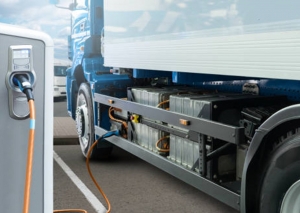Police Warn HGV Drivers of Rising Fuel Thefts
Suffolk Police are renewing their appeal to lorry drivers and haulage companies to stay vigilant as thieves increasingly target heavy goods vehicles (HGVs) for fuel theft. A recent string of thefts along the A14 and A12 has seen diesel siphoned from parked HGVs in laybys and lorry parks overnight, leaving damage to fuel caps and tanks. Authorities believe the true number of incidents may be higher than reported, with some cases going unrecorded.
Since 17 October, four confirmed incidents have occurred in locations including Haughley, Creeting St Peter, Creeting St Mary, and Kentford’s Herringswell Road. Police urge all drivers to report any thefts, as well as suspicious activity around parked HGVs, to help gather crucial evidence. Superintendent Matthew Carney advised, "If you notice any unusual activity near vehicles at night, reporting it immediately via 999 can significantly improve our chances of catching those involved."
The force highlights that HGVs are often prime targets due to their large fuel tanks and the fact that thefts often take place while drivers are resting. Fuel theft not only incurs financial losses but also causes costly damage to vehicle parts like fuel caps, tanks, and fuel lines.
Secured By Design, a police initiative for crime prevention, advises on measures to help deter theft, including installing alert devices that notify drivers if fuel or vehicle parts are being tampered with.
New Safety Standards for HGVs in London Enforced to Boost Road Safety
On 28th October 2024, new, stricter safety standards for heavy goods vehicles (HGVs) entered into force in London, as Transport for London (TfL) updated its Direct Vision Standard (DVS) regulations. Now, all HGVs over 12 tonnes operating within Greater London must have a minimum three-star DVS rating or be fitted with an enhanced safety system known as the Progressive Safe System (PSS). Vehicles that do not meet these updated standards or lack a valid HGV safety permit are now subject to penalties of up to £550.
The DVS and HGV Safety Permit Scheme form an essential part of the Mayor of London’s Vision Zero strategy to eliminate all deaths and serious injuries on London’s roads. By enhancing direct visibility for drivers and utilising advanced safety technology, the updated scheme aims to prevent the most common types of fatal collisions involving pedestrians and cyclists, especially when HGVs move off or turn.
Since its initial rollout, TfL’s DVS measures have shown notable success, with a 62% reduction in fatal collisions involving HGVs since the 2017-2019 baseline. However, serious incidents continue, with six fatalities and 32 serious injuries recorded in 2023, underscoring the need for these updated measures to make further progress toward Vision Zero.
TfL worked closely with the freight industry and vehicle manufacturers to develop the PSS and provided a six-month grace period for operators to install and test new safety equipment. The PSS now includes the latest technologies to boost visibility and support safer operations on London’s roads, marking a significant step toward a safer capital.
HGV Industry Faces Driver Shortage as Recruits Struggle with Unsociable Hours
A transport manager has highlighted the ongoing “chronic driver shortage” in the HGV industry, as new recruits are deterred by the unsociable hours. Chris Kirk, from Maritime Transport’s Felixstowe depot, spoke at a driver recruitment event in Suffolk, explaining that many potential drivers are put off when they realise they might not always get home for meals.
The event, funded by Suffolk and Norfolk County councils, aimed to encourage more people to consider a career as an HGV driver. The sector is currently facing a shortfall of around 40,000 drivers, according to the HGV Training Network. Kirk pointed out that balancing home life and work can be a challenge but emphasised that there are ways to manage expectations and support new drivers from the start. He stressed that improving recruitment could solve operational challenges in the industry.
Despite the challenges, some, like Theresa, a former healthcare assistant in her 50s, are embracing the opportunity. “I just love driving,” she said, as she trains to become an HGV driver. Although she admits reversing has been tricky, she’s enjoying the freedom that comes with the job. She sees the role as a new adventure and a fresh start.
With many HGV drivers approaching retirement age, the industry needs fresh recruits. James Clifford, CEO of HGVC, stressed the importance of attracting new talent, stating that while the worst of the recent crisis is over, the UK still desperately needs more drivers to meet demand and avoid future shortages.
Fuel Duty Set to Rise as Campaigners Call for Fairer Transport Costs
Fuel duty is expected to rise by up to 7p per litre following the budget, as speculation grows that the chancellor will reintroduce inflationary increases and end the temporary cut. Environmental and transport campaigners are urging the chancellor, Rachel Reeves to align motoring costs with other forms of transport after years of fuel duty freezes, while rail fares have soared.
Treasury officials have reportedly advised Reeves to act now, with petrol prices lower than when the 5p duty cut was introduced in 2022. Motoring groups, however, argue that increasing fuel duty would disproportionately impact struggling drivers. The current duty stands at 52.95p per litre, generating around £25bn annually.
Campaigners like the Campaign for Better Transport believe reinstating inflationary rises could raise an additional £4.2bn, helping to reduce transport emissions, which account for nearly 30% of the UK’s greenhouse gases. They argue that public transport should be more affordable compared to driving, which has become cheaper due to fuel duty freezes.
Meanwhile, research shows wealthier households benefit more from lower fuel duty, as they own more vehicles. As electric vehicle use grows, there are calls for Reeves to consider a pay-per-mile tax as a fairer way to tax road users, but such proposals have historically been unpopular. The Treasury has declined to comment on any potential tax changes.
First Electric HGV in the UK Joins Welch’s Transport
The first electric heavy goods vehicle (eHGV) from the eFreight 2030 consortium has been delivered to Welch’s Transport in Cambridgeshire. The 42-tonne Renault Truck will operate from the company’s Duxford site, handling regional distribution and long-haul deliveries. This marks the first use of Renault Trucks' heavy-duty electric model in UK operations.
Welch’s Transport and Renault Trucks are among the 14 founding members of eFreight 2030, part of the Government’s Zero Emission HGV and Infrastructure Demonstrator (ZEHID) programme. The initiative aims to introduce 100 eHGVs and 32 new charging locations, helping shape the future of zero-emission transport in the UK.
Chris Welch, managing director of Welch’s Transport, highlighted the company's commitment to sustainability, noting that the addition of the electric HGV is a significant milestone in decarbonising road freight. The company has already invested in electric vehicles, including a 19-tonne e-truck for Cambridge's Net Zero delivery service and a 150kW supercharger at its Duxford site.
Michael Boxwell, Group CEO of Voltempo, which leads the eFreight 2030 consortium, expressed enthusiasm for the project, stating that real-world insights from eHGV operations will demonstrate how electric vehicles can replace conventional HGVs at scale.
Hauliers Face £10m in Fines for Migrants Found in Vehicles
Haulage companies were issued nearly £10 million in fines last year after migrants were found hidden in vehicles, according to figures revealed by the Home Office. A total of 1,276 penalties were handed out in 2023/24 under the Clandestine Entrant Civil Penalty Scheme, which targets those carrying illegal migrants, with fines reaching up to £10,000 per person discovered.
Dominic Graham, manager of Alcaline Transport in Kent, noted that many drivers and companies are law-abiding but face significant challenges in preventing stowaways. He stressed that while deterrents are necessary for those acting illegally, the current system needs review, as drivers may struggle to detect hidden individuals despite taking precautions.
The government maintains that the fines aim to tackle negligence, not deliberate smuggling, with severe criminal penalties for those engaged in people smuggling. However, haulage industry leaders have expressed concerns about losing drivers due to these penalties, despite the existence of a Civil Penalties Accreditation Scheme, which reduces fines for companies with strong security measures.
Although recent security measures have reduced the number of stowaways at Channel ports, smugglers continue to target road transport, including lorries and even caravans. A Home Office spokesperson emphasised the government's commitment to stopping illegal migration and tackling smuggling operations.
Research Reveals Support for Age-Based Driving Licence Revocation in the UK
Research reveals that one in 20 Britons believe that drivers should automatically lose their licence upon reaching the age of 50 due to concerns about "old age." A recent poll indicates that over a third of UK adults support the idea of age-based licence revocation. The survey highlighted diverse opinions on the appropriate age for this measure, with 5% advocating for 50, 8% for 60, and 11% for 70. The increasing number of older drivers is evident, as the DVLA reports that over 40 million people hold a licence in the UK.
Regional variations are notable, with nearly half of respondents in Greater London supporting licence revocation at 50, compared to just 28% in Scotland. Northern Ireland displayed the strongest opposition, with 78% against the idea of age-based licence removal. The survey also revealed significant support for regular retesting, with 70% of Britons in favour. Many suggested retesting every decade, while others preferred intervals of 20 or 30 years.
Aidan Rushby, founder and CEO of Carmoola, noted that public sentiment indicates a desire for older drivers to retake their tests to ensure road safety. The survey showed that attitudes shifted significantly when considering the future of autonomous vehicles, with over a third of respondents who initially supported revoking licences for those over 70 changing their views if older drivers had access to self-driving cars.
Younger adults showed more enthusiasm for older drivers using autonomous vehicles, with 46% of those aged 25-34 supporting the idea, while only 24% of individuals aged 55 and above felt the same. Currently, drivers must renew their licence every three years after turning 70 to maintain their eligibility to drive on UK roads.
New Driving Licence Proposals Aim to Improve Road Safety for Young Motorists
Experts are advocating for new driving licence regulations in the UK aimed at enhancing road safety, particularly for younger motorists. The RAC Foundation has approached the Minister for the Future of Roads, recommending the introduction of a "Graduated Driving Licensing" (GDL) scheme, which has proven successful in reducing accidents in various countries. This initiative would restrict younger drivers, typically those aged 17 to 19, from carrying passengers for a designated period to help them gain essential driving experience.
The proposed regulations suggest a minimum six-month learning phase before drivers can take their practical test. After passing, new drivers would be prohibited from having passengers under 25 unless accompanied by an older adult during the first six months. Violation of these rules could result in six penalty points, leading to an immediate licence suspension and a requirement to retake the driving test, as outlined in the New Drivers Act 1995.
The RAC Foundation highlights the alarming statistic that drivers aged 17 to 24 represent a significant portion of road casualties, being involved in one-fifth of all fatal and serious collisions despite making up only 7% of licence holders.
In addition to these proposals, Thames Valley Police has launched the Go Drive initiative, which employs behavioural science to promote road safety among young drivers. This one-hour educational programme will be implemented in schools and community groups to foster safer driving habits and ultimately save lives on the road.













